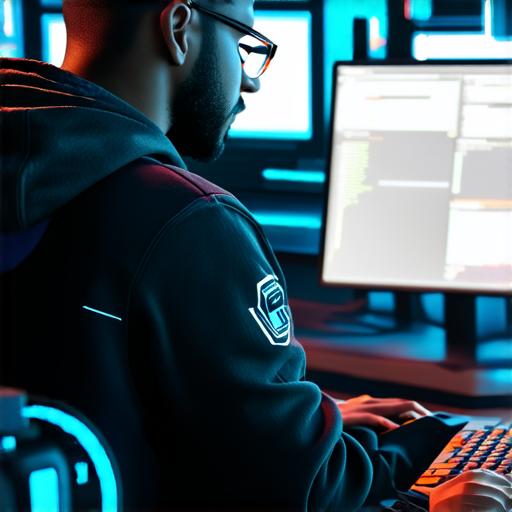Blockchain technology has been gaining widespread attention and adoption in recent years, thanks to its decentralized, secure, and transparent nature.
Understanding Blockchain
Before diving into how to be part of blockchain, let’s first understand what it is and how it works. A blockchain is a distributed database that stores information in blocks that are encrypted and linked together. Each block contains a record of multiple transactions, and once a block is added to the chain, it cannot be altered or deleted. This makes the information stored on a blockchain tamper-proof and transparent.
Skills and Knowledge Required
To become part of blockchain, you will need a combination of skills and knowledge in various fields, including:
- Programming languages: You will need to have a strong understanding of programming languages such as Solidity (for Ethereum-based blockchains), Python, Java, or C++ (for other blockchain platforms).
- Blockchain concepts and protocols: You should have a solid grasp of the underlying principles of blockchain technology, including cryptography, distributed systems, consensus algorithms, and smart contracts.
- Cryptocurrency knowledge: If you are interested in working on blockchain-based cryptocurrencies or tokens, you will need to understand the basics of cryptography and how it relates to blockchain.
- Cloud computing: You should have experience with cloud computing platforms such as Amazon Web Services (AWS), Microsoft Azure, or Google Cloud Platform, which are commonly used for blockchain development.
- Security awareness: Blockchain technology is not immune to security threats, so you should be aware of potential vulnerabilities and how to mitigate them.
Tools and Resources Available
There are numerous tools and resources available for developers looking to become part of blockchain, including:
- Blockchain platforms: There are several blockchain platforms available, such as Ethereum, Hyperledger, EOS, and Corda, each with its own unique features and capabilities. You can choose the platform that best suits your needs and skillset.
- Development frameworks: There are various development frameworks available, such as Truffle for Ethereum, Remix for Ethereum, and Web3.js for other blockchain platforms, which can simplify the development process and provide a more streamlined workflow.
- Online courses and tutorials: There are numerous online courses and tutorials available that cover various aspects of blockchain development, including coding, security, and best practices.
- Communities and forums: Joining communities and forums such as Reddit’s r/ethereum or Stack Overflow can provide a platform to connect with other developers, share knowledge and experiences, and get help with any challenges you may encounter.
- Consulting services: There are many consulting services available that offer specialized expertise in blockchain development, including security audits, smart contract development, and regulatory compliance.
Real-Life Examples of Successful Blockchain Projects
Now that we have covered the skills and resources required to become part of blockchain let’s look at some real-life examples of successful blockchain projects:
- Ethereum: Ethereum is the most popular blockchain platform, with a market capitalization of over $500 billion as of 2021. It is used for a wide range of applications, including decentralized finance (DeFi), gaming, and supply chain management. Some notable projects built on Ethereum include CryptoKitties, OpenSea, and Balanc3.
- Hyperledger: Hyperledger is an open-source blockchain platform developed by IBM for enterprise use cases. It provides a secure, scalable, and private network that can be customized to meet specific business needs. Some notable projects built on Hyperledger include Fabric, Sawtooth, and Quorum.
- EOS: EOS is another popular blockchain platform with a focus on speed and scalability. It provides a high-performance network for applications that require fast transaction processing and low fees. Some notable projects built on EOS include Uniswap, Secret Network, and Delegated Proof of Stake (DPoS).
- Corda: Corda is a blockchain platform developed by Ripple Labs for enterprise use cases. It provides a secure and scalable network that can be customized to meet specific business needs. Some notable projects built on Corda include TradeIX, RippleNet, and CorDapp.
Summary
Becoming part of blockchain can be an exciting and rewarding opportunity for developers looking to contribute to innovative technology and solve real-world problems. With the right skills and knowledge, as well as access to the right tools and resources, you can become a valuable member of the blockchain community. Whether you are interested in working on decentralized applications (dApps), cryptocurrency development, or supply chain management, there is always something new and exciting to explore in the world of blockchain.

